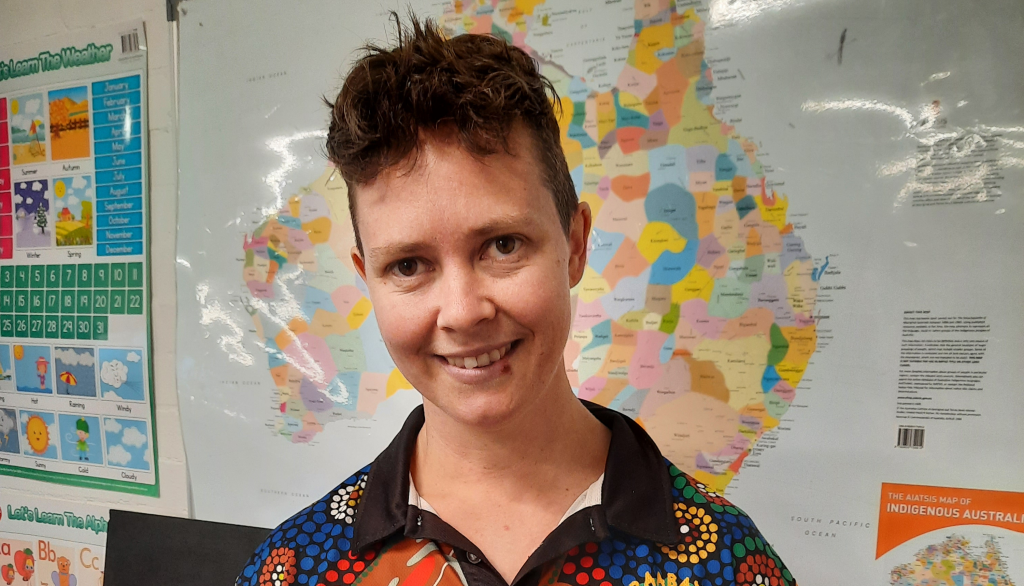
Ruth Nelson is a Western clinical psychologist employed at the Baabayn Aboriginal Corporation and has participated in Baabayn’s community life for about four years. She is also a member of the Josephite Justice Network.
In my job as a clinical psychologist at Baabayn, I draw a lot on liberation psychology which holds that there is no healing without justice.
Personal healing cannot be separated from systemic justice and the righting of wrongs. We need to systemically address policies and institutions that perpetuate racist behaviours and behaviours that oppress the First Nations people.
Storytelling is an important part of Baabayn’s work. The First Nations people have so much to teach us about how to live in Australia healthfully, harmoniously with the land and with each other.
At Baabayn, I am often the outsider witness to the storytelling about some of the wrongs that have been done. Storytelling is also about strength of community and the First Nations people reconnecting with those ancient abilities to live and thrive.
The stories are often written into published articles that try to teach the broader community about better ways of living and understanding who we are, and who we are in relationships.
The word ‘Reconciliation’ means the restoration of friendly relations. Using the word ‘Reconciliation’ to describe the relationship between Indigenous and non-indigenous peoples is a myth. There were never friendly relations and there’s nothing to restore in the relationship.
‘Reconciliation’ also includes the action of making one view or belief compatible with another. In that definition there’s nothing that speaks justice or acknowledgement. It suggests that the belief that there’s a legitimacy to the occupation of this country is valid, however, it’s not.
I would prefer to hear what word the First Nations people would use instead of ‘reconciliation’.
It’s important to remember the history that has been suppressed and tell the truth about what actually happened and what is happening now.
There is no widespread acknowledgement that many of the difficulties the First Nations people face in their lives, including family violence and addiction, stem from over two hundred years of trauma, colonisation and genocide. Its effects are ongoing.
There are ways in which Christianity or Catholicism is part of colonisation. Religion, like all human institutions, has both the power for evil and good. There are also ways in which Catholicism offers us a very deep set of values about how to live in harmony with each other and the world. I think it’s those values and connecting with them that help me stay in touch with what I’m doing when it’s hard.
I believe the Josephites embody those values very strongly. Compassion, love, hope and connection are the things that are important. There is beauty and strength in being part of the Josephite Justice Network, a group of women who are dedicated to justice and truth.
There are signs of hope. The biggest challenge is not for the First Nations people to heal themselves but for white people to heal themselves. The hard part is for white people is to come to terms with how we have behaved and do behave.
Where the First Nations people are generous enough to offer stories that we can learn from them, I think it’s our responsibility to have the cultural humility to be quiet and to listen.
